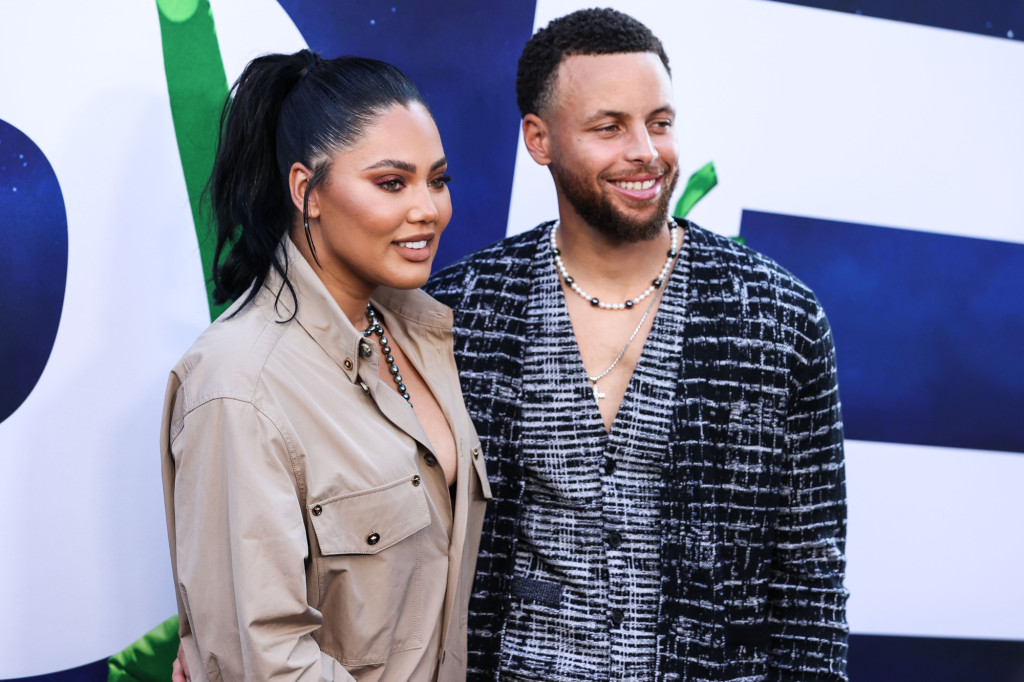In a recent appearance on the Call Her Daddy podcast, Ayesha Curry revealed that she didn’t originally plan to get pregnant and become the traditional wife alongside NBA champion and superstar Steph Curry.
“I didn’t want kids. I didn’t want to get married,” Ayesha told Alex Cooper, “I thought I was going to be a career girl. I was never the little girl that dreamt about the wedding dress — then it happened so early in my life.”
The 36-year-old mother of four also mentions that “Steph just doesn’t understand how it feels” to be the recipient of heightened criticism that women like her face as opposed to their male counterparts.
Ayesha Curry reveals she never wanted kids, had her own career goals, and Steph doesn’t understand her 😳
— Fullcourtpass (@Fullcourtpass) October 3, 2025
(h/t @ItsKingSlime)pic.twitter.com/ljghlWSQSa
When Steph “tries to resonate” with her struggle, Ayesha says he struggles because he’s focused on the truth rather than how the lies deeply impact her emotionally.
The comments, of course, sparked a wide range of reactions; some argued that Ayesha has every right to voice her frustrations with playing second fiddle to Steph in the public eye, while others criticized her for being frustrated that, despite her immense wealth, her businesses haven’t taken off in the ways she hoped.
There has also been a cadre of women who can relate to Ayesha’s struggle, even if her finances and celebrity status lessen the stakes that come with putting one’s career and happiness on the back burner for the sake of motherhood.
Regardless of where one stands on Ayesha, there’s one aspect of her statements that has gone largely unremarked: the ways Black men can be a bit more nurturing in our relationships, with both our partners and our communities.
Let’s be clear, we don’t really know about how Steph shows up as a nurturer at home; only their family understands that. What’s significant here is how many women in heterosexual relationships feel this way.
Because men are socially conditioned to be breadwinners and women to be nurturers, men often neglect to develop the emotional and psychological skills required to be caretakers.
In fact, at times, it seems it’s hardly on men’s radar to consider that these skills are essential to being part of a village.
Social conditioning often takes the form of mediated images of manhood that convey ideas and ideals about what is considered to be masculine. Those ideas are then given validation and legitimacy in our politics, culture, and interpersonal relationships, even when they’ve been proven to be harmful to our psyches.
As for masculinity, we are traditionally taught not only to show very little vulnerability but also to shortchange vulnerabilities in others, neglecting to care for their lived experience.
So then, the lesson here is to dispel the notion that gender has any power in determining how we treat one another. Categorizing caretaking as an aspect of femininity only widens the gap between our call to really see and understand one another as whole beings.
For Black men in loving relationships, whether romantic or platonic, that means carrying others’ burdens, listening to vulnerabilities, and actively seeking out ways to be considerate.
If you’re sick of hearing from Ayesha Curry, that’s one thing, but it’s important we don’t ignore the folks in our lives sacrificing their own purpose for the good of others.
Photo Credit: DepositPhotos.com




